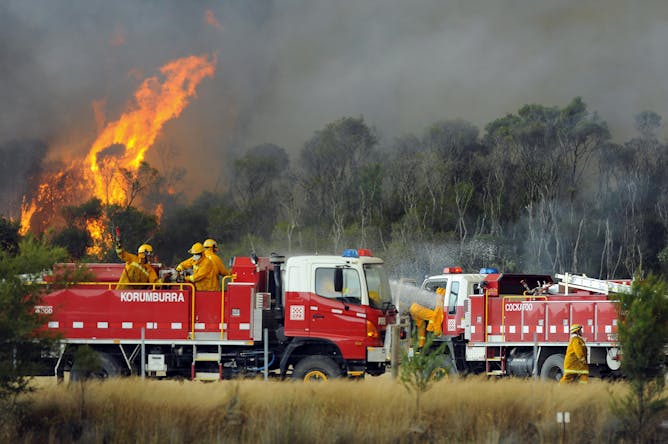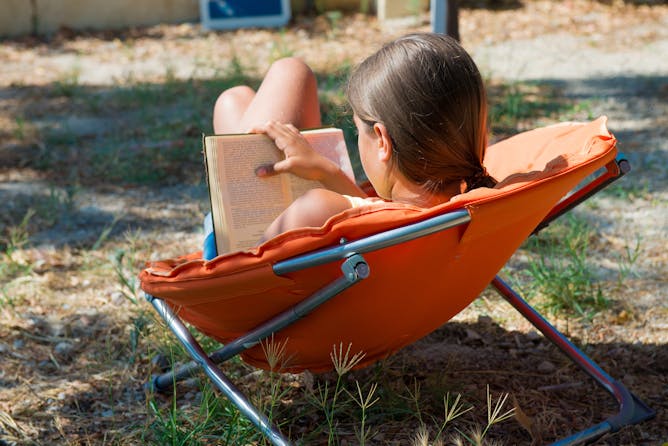|
|
|
Editor's note
|
|
I’ve always had a potty mouth. In my early teens I would often get in trouble at school for letting expletives fly in the classroom for (perhaps undeserving) things like getting a maths problem wrong. Now, well out of high school, I’ve come to appreciate the flavour these meaty words can give to a conversation, joke, or argument. So, for me at least, it’s hard to imagine public profanity is still an offence in every Australian jurisdiction.
Context is everything. If you’ve attended a comedy show, you’ve probably heard words like “f*ck” float freely without police storming the theatre. On the other hand, using the same word in front of children at a local sports ground could get you in trouble if someone complained to the local police.
But there’s a sinister side to how the law is used, too. As Rick Sarre explains, Indigenous Australians – today and in history – are disproportionately charged with this offence.
|
Anthea Batsakis
Deputy Editor: Politics + Society
|

|
|
Top story
|

When delivered to an unsuspecting group, especially where children are present, swearing can amount to a criminal offence.
Shutterstock
Rick Sarre, University of South Australia
Here's when the law says it's okay to let rude words fly.
|

Black Saturday firefighters battling flames in Victoria. When we laud fire fighters as heroes, we fail to acknowledge the ongoing impact of the fires.
AAP Image/Andrew Brownbill
Leanne Cutcher, University of Sydney; Graham Dwyer, Swinburne University of Technology
In commemorating firefighters as heroes, we can fall into the danger of overstating their ability to control fires, absolving ourselves of responsibility.
|

The time we invest in our digital lives is time we don’t get back. But, it’s not impossible to knock your digital-dependance - and the holidays are the best time to start.
SHUTTERSTOCK
Robert Hassan, University of Melbourne
As the head of a media and communications program, my life's digital-analogue balance was off. Four weeks at sea with no devices refocussed my views – even on things that had been there all along.
|

Summer is a great time to catch up on some reading.
from shutterstock.com
Margot Hillel, Australian Catholic University
A children's literature professor recommends some of her favourite books for high school kids.
|
Politics + Society
|
-
Carla Pascoe Leahy, University of Melbourne
Since the second world war, every generation has worried that children are spoilt, cosseted, or being corrupted by new technologies. But, on many measures, today's children are doing just fine.
|
|
Cities
|
-
Zoe Myers, University of Western Australia
It's well-established that green spaces are good for our well-being. Now we can demonstrate that greater biodiversity boosts this benefit, as well as helping to sustain native plants and animals.
-
John Page, Southern Cross University
As you walk about a city are you in public or private space? The line is often blurred.
|
|
Business + Economy
|
-
Peter Martin, Crawford School of Public Policy, Australian National University
The introduction of the GST got off to a wobbly start, but has since become accepted as the Australian way of paying for things.
|
|
Health + Medicine
|
-
Arosha Weerakoon, The University of Queensland
Here's how to avoid a trip to the emergency dentist this holiday.
-
Arnagretta Hunter, Australian National University
Hot weather can make chronic health conditions, most commonly experienced by older people, more difficult to manage. So it's a good idea to look out for older friends and relatives this summer.
|
|
Arts + Culture
|
-
Benjamin Kooyman, Australian National University
Mr Bean made its television debut on January 1 1990. Thirty years on, the pilot episode still captures all that is great about Rowan Atkinson's character.
-
Kit MacFarlane, University of South Australia
From Clint Eastwood to Bert Newton – here's what Melbourne could watch on that new technology, the television set, to see in the new decade.
|
|
Environment + Energy
|
-
Manu Saunders, University of New England; Callum McKercher, University of New England; Mark Hall, Western Sydney University; Tanya Latty, University of Sydney; Tobias Smith, The University of Queensland
Bees innocuously buzzing 'round the birdbath may be a barometer for burgeoning bee invasions.
|
|
| |
Featured jobs
|
|
|
| |
| |
| |
| |
| |
|
|
|
|
|
|
|